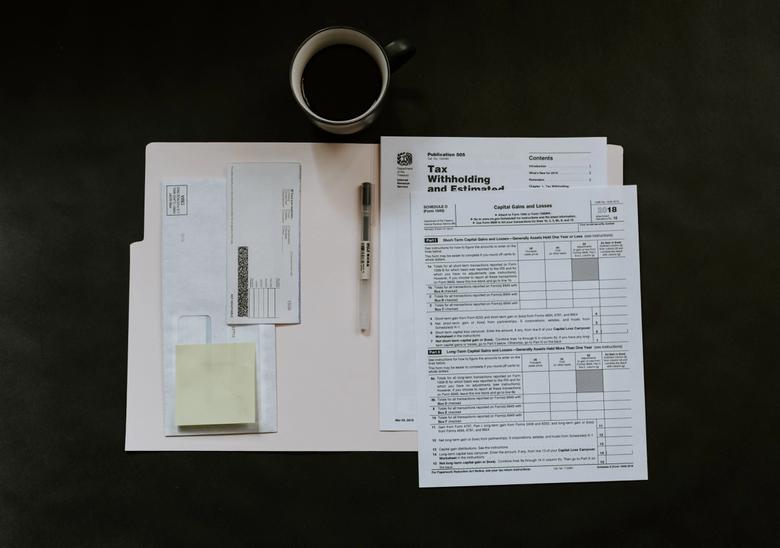Let's Demystify Double-Trigger RSUs
Receiving equity in a private company can come with the hope of striking it rich, but you should know the implications of double-trigger RSUs before signing your offer.
Restricted stock units, or RSUs, have quickly become one of the most popular forms of equity compensation for employees, even at private companies. While stock options have traditionally been the favored choice of equity compensation amongst startups, as these companies mature, many are offering RSU grants rather than stock options.
If you receive RSUs at a private company, they're likely subject to a double-trigger provision; you should understand this concept well because it affects when you can sell your shares and how your taxes work.
The double-trigger complicates things a bit, so let's break it down. This article will cover:
- What are double-trigger RSUs?
- The tax implications of double-trigger RSUs
- Risks of holding RSUs at private companies
What Are Double-Trigger RSUs?

Private companies that issue RSUs typically have a double-trigger vesting provision — meaning two things must happen before you can sell your company stock:
- The first trigger occurs when your shares reach the vesting date
- The second trigger occurs after a liquidity event, such as an IPO or acquisition
Why have private companies added the double-trigger provision? The simple answer is that double-trigger RSUs have better tax implications for employees.
If private companies issue single-trigger RSUs, then you'll have complete ownership over your shares at vest and you'll owe income taxes on them. However, shares in a private company are generally illiquid, so you won't be able to sell them to cover your tax burden — you'll be paying taxes out of pocket.
Let's get into the tax implications of double-trigger RSUs.
Tax Implications for Employees

The lock-up period will delay your selling
The double-trigger provision means that no income tax is owed until the second trigger — the date of the liquidity event. However, most companies will have a lock-up period following the event where you can't sell your shares, usually for 90-180 days.
What does this mean for you? You'll owe taxes on your RSUs, but you won't be able to sell shares to cover these taxes until the lock-up period ends.
The good news for you is that lock-up periods only last a few months, and a lot of private companies will withhold some of your shares to cover your income tax so you won't have to pay out of pocket (but check your agreement to make sure).
Your tax bracket could be impacted
If you've been receiving RSUs for a few years now prior to the liquidity event, you might have accumulated a lot of shares. So, all of your vested shares will be subject to taxation at the same time once the second trigger occurs.
Typically, you may try to spread your tax liability over multiple years, but after a liquidity event, your RSUs become taxable in a single tax year — this could move you to a higher tax bracket and increase your tax payments correspondingly.
Let's look at an example
Suppose your company gives you 8,000 RSUs over four years; say 25% of your RSUs vest each year, so you receive 2,000 shares per year. RSUs are taxed at the market value of the shares once they become yours — for simplicity we'll say that's $40 per share in this example. Let's look at how much income would be taxable with a single-trigger provision and a double-trigger provision:
- Single-trigger RSUs: The only trigger here is the vesting date, so when 2,000 of your RSUs vest after the first year, you pay income tax on $80,000. In this example, your tax bill will look the same over the next 3 years that you continue receiving RSUs (in reality, it will vary as the market value of the company stock will fluctuate).
- Double-trigger RSUs: If the liquidity event happens after the 4-year vesting schedule has finished, you'll have 8,000 vested RSUs to pay taxes on at once — that's $320,000 to pay income tax on in one year. This could easily push you into a higher tax bracket.
Your company may not withhold enough
Once the second trigger occurs and your shares vest, your company will likely withhold 22% of your RSU income to cover the federal tax rate, but this may not cover your entire tax obligation.
If you have an impending liquidity event and a lot of shares, your tax rate could end up being much higher and you may owe taxes in addition to the 22%.
You'll also owe capital gains taxes
Aside from income taxes, you'll also owe capital gains taxes if you sell your shares. This part is simpler because it works in the same way as other investments:
- You'll pay short-term capital gains taxes on shares held for less than 1 year at the same rate as your income.
- You'll pay long-term capital gains taxes on shares held for more than 1 year at a rate lower than your income.
Other Risks You May Face

Aside from the tax implications discussed above, you should be prepared for other risks you may face receiving RSUs from a private company.
You may be wondering what happens if you leave before your company goes public. If you leave before the first trigger, you won't get any RSUs that haven't reached their vesting date. Generally speaking, if you leave once the first trigger has been met on some or all of your shares but before the second trigger has been met, you'll keep your time-vested shares and they'll turn into common stock if the company has a successful liquidity event.
If your company's liquidity event never happens, your RSUs will become worthless since they're contingent on the second trigger.
You should also be aware that holding stock in a private company is riskier than holding stock in a public company. Flow Financial Planning explains:
"It’s even harder to predict the future value of private-company stock than public-company stock, which itself is notoriously elusive. So, whatever your private-company stock is worth now is probably not what it’s going to be worth when the stock becomes really and truly yours."
The bottom line is that you need to understand the commitment and risk associated with holding RSUs in a private company. You should be confident that your company will have a successful liquidity event before putting too much value on your RSUs.
If you expect to accumulate a lot of money in RSUs, you may want to consult an advisor for tax advice.
Key Takeaways
- High-value private companies may distribute shares of their stock to employees using pre-IPO RSUs, and 2 triggers must be met before an employee can trade: vesting date and a liquidity event.
- Your tax bracket could be impacted if you have a lot of shares that vest at the same time after the second trigger occurs.
- Holding stock in a private company can be risky because there is always the possibility that the liquidity event won't be successful.
The information provided herein is for general informational purposes only and is not intended to provide tax, legal, or investment advice and should not be construed as an offer to sell, a solicitation of an offer to buy, or a recommendation of any security by Candor, its employees and affiliates, or any third-party. Any expressions of opinion or assumptions are for illustrative purposes only and are subject to change without notice. Past performance is not a guarantee of future results and the opinions presented herein should not be viewed as an indicator of future performance. Investing in securities involves risk. Loss of principal is possible.
Third-party data has been obtained from sources we believe to be reliable; however, its accuracy, completeness, or reliability cannot be guaranteed. Candor does not receive compensation to promote or discuss any particular Company; however, Candor, its employees and affiliates, and/or its clients may hold positions in securities of the Companies discussed.
